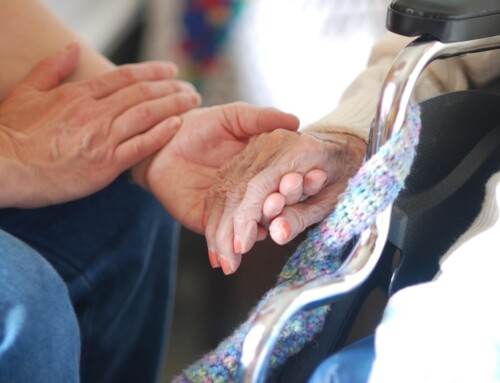September marks World Alzheimer’s Month, a global effort to raise awareness about Alzheimer’s disease and its impact. If your loved one is getting older or showing signs of cognitive decline, now is a great time to learn about Alzheimer’s and what it means for seniors’ long-term care. Everyone wants to provide personalized care to family members, but the realities of life sometimes get in the way.
Luckily, memory care at a specialized assisted living facility is an affordable, effective, and caring option for seniors dealing with Alzheimer’s. This September, it may be time to make that vital choice and find the best local memory care facility for your loved one.
World Alzheimer’s Month Highlights the Disease
- Alzheimer’s affects nearly 6 million Americans today, and this number is projected to more than double to almost 14 million by 2050. In addition, nearly all of those 6 million Americans with the condition are seniors over the age of 65. As our country’s population ages, more families will face challenges and be forced to make tough decisions about their family member’s care.
- Over 11 million Americans provide some amount of unpaid care for loved ones with Alzheimer’s, often at great emotional and financial cost. Many of these family caregivers experience stress, depression, and burnout – for good reason. Caring for someone with Alzheimer’s isn’t easy, especially when juggling a full-time job and family responsibilities.
- Most experts agree that an early diagnosis can slow the disease’s progression and improve their overall quality of life as they transition to their new reality. If you notice any early signs of Alzheimer’s, such as memory loss, confusion, and difficulty completing simple, familiar tasks, always follow up on your suspicions and help your family member get medical help. There isn’t a magic cure, but the earlier you notice these issues, the earlier you can plan for the future.
What to Do If You Suspect Your Family Member Has Alzheimer’s
If you notice signs of memory loss, confusion, or behavioral changes in a loved one, don’t delay in seeking assistance. World Alzheimer’s Month is an ideal time to access resources and learn what to do next.
During this month, many organizations offer free or discounted memory screenings, educational seminars, and support group meetings. The Alzheimer’s Association, for example, provides a 24/7 helpline, online resources, and local chapters that can connect you with professionals and other families facing similar challenges. While many organizations do fantastic year-round work helping those with Alzheimer’s, reading this blog now might be a sign that it’s time to take action and take advantage of the resources soon at your disposal.
If your family member truly is dealing with the beginning stages of Alzheimer’s, securing them an early diagnosis and access to needed resources is the best service you can provide. Next, it’s time to start thinking about taking care of their long-term needs.
Assisted Living and Memory Care Can Help
During World Alzheimer’s Month, many organizations will continue to offer the help that caregivers need.
There is no shame in seeking outside help to care for your family member, especially for health conditions like Alzheimer’s that often create the need for 24/7 caregiving and assistance. Memory care facilities offer several advantages for individuals with Alzheimer’s or dementia beyond what they can receive at home:
- Staff trained in Alzheimer’s care and management
- Safe and secure environment to prevent wandering
- Daily routines are perfectly structured to limit anxiety and confusion among residents
- Engaging activities and social communities to stimulate cognitive function and keep residents’ minds sharp
- Access to on-site emergency medical care and healthcare transportation services
- Nutritious meals tailored to dietary needs
The best part? Your senior family member who is only just now showing signs of cognitive decline doesn’t need to wait for their condition to worsen to benefit from memory care and assisted living. Facilities that cater to memory care and non-memory care residents, like A Banyan Residence, allow for those with gradually worsening conditions like Alzheimer’s to remain in place instead of packing up and moving to a new facility later down the line. This way, they stay in a familiar environment, avoiding the stress and confusion that comes with sudden changes.
If your family member needs help in daily life due to cognitive memory issues, assisted living and memory care may be the solution you have been looking for. Contact A Banyan Residence today to schedule a tour of our facility and learn more about how we help residents with Alzheimer’s thrive.








